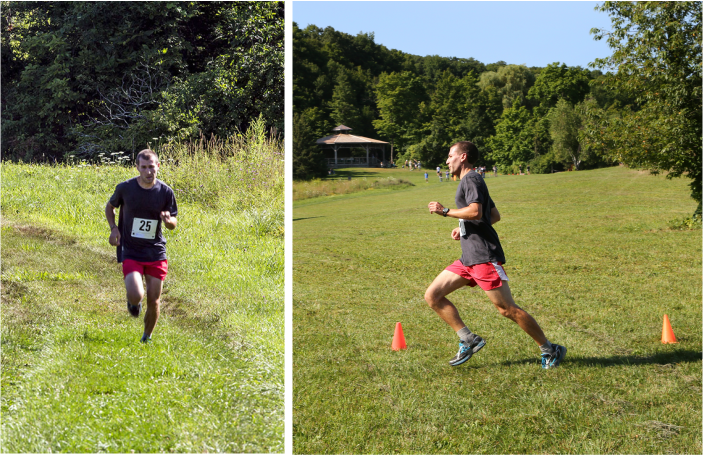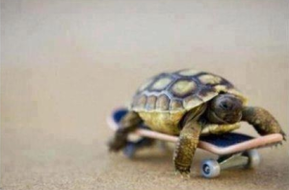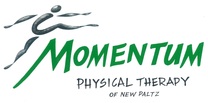|
Having come across yet another article and research study highlighting the meteoric rise of injury rates with young athletes specializing in one sport, it got me thinking about what many of us older (and not necessarily wiser) adults do on a regular basis, especially us runners. How many of us actually get out of our comfort zone of running regardless of speed or interval/distance? How many of us actually mix it up on a regular basis? Oftentimes, we fall into that specialization category at some point or another much like young athletes these days, and understandably so given our schedules. It is no surprise then that running related injuries are so common. 
With winter fast approaching, it is a perfect time in the northeast to break the habit of specialization temporarily, and consistently get out of your comfort zone so that you can come back stronger and reduce the likelihood of injury during the busier months of training and racing. It is your chance to build whole body robustness and resiliency as you can explore other movement patterns besides running straight ahead. This idea is especially important because running isn't just a single plane activity. While the majority of movement is forward obviously, there is a lot going on side-to-side and with rotation, mainly in terms of stabilization. This is where getting out of your comfort zone really pays dividends as you can challenge all 3 planes of movement resulting in improved running efficiency and, more often than not, fewer injuries.
Some ideas for the winter: 1. Drill work. Think form and technique and reinforcing the skills required for an efficient running gait. Regardless of your individual style, there are certain foundational skills worth mastering to improve performance which doubles as a countermeasure to many common running related injuries like tendinitis and stress syndromes. A great resource for guidance and ideas is Chris Johnson as he is constantly posting excellent videos related to this very topic. To be perfectly honest, this is a great adjunct to training regimens year round anyway. 2. Strength Training. Like drill work, this is also highly encouraged to incorporate into your training routine on a regular basis as there is no downside to strength. However, during the off season of winter, different goals can be addressed and different training strategies can be used. It is a great time to train more as a total athlete working on some areas that might be missed during the busier seasons and stress total strength in all planes of movement. Variations of multi-joint exercises like dead lifts, squats, pulls and presses along with unilateral versions is a way to help balance and bulletproof your body for the demands of running. For inspiration, ideas and intelligent programming, check out Ben Bruno's YouTube channel. You will not be disappointed. 3. Cross Country Skiiing. I've not come across a more challenging total body activity, except for rowing possibly, than cross country skiing. You don't have a choice but to use every part of your body which makes for a highly efficient exercise. Both styles of cross country skiing, skate and classic, are demanding but skate can be particularly advantageous since you spend more time in multiple planes of movement working different muscle groups than the straight ahead style of classic. It's also faster and more enjoyable in my opinion. The Shawangunk Nordic Ski Association is a great resource to keep you up to date on all of the trails and conditions locally. 4. Snowshoeing/Winter Hiking. Whether or not there's snow, getting out on some of the trails and high peaks around here, especially in the Catskills, is an excellent workout. There is plenty of variation and level of difficulty making it accessible for all skill levels. Hop on some single track to add another element of difficulty and to improve your technical proficiency on some of the gnarly terrain. Add snow to the mix and then you can throw on a pair of snowshoes making for a completely different challenge and experience. 5. Swimming. For those that want to stay inside, swimming is always an excellent alternative (or so I'm told since I'm still in a perpetual learning phase). Like cross country skiing, this is another total body activity that will engage different muscle groups than running does allowing you to be more of a complete athlete who happens to run instead of only a runner. Winter doesn't have to be a true off season and you can break the cycle of specialization. It can be the perfect time to make gains in a variety of ways that can work in your favor come springtime when you're logging your miles again. So get out of your comfort zone and reap the game changing rewards of improved performance and fewer injuries this year! Knowledge = Power; Share The Power:
0 Comments
Happy Spring! It may not feel like it just yet considering there's still a decent amount of white stuff out there but I'm sure all of you golfers are itching to get out on the links! While the last remnants of snow melt away, the greens dry up and the courses are prepared, now is the perfect time to jump start your season with some easy preparation of your own. Here are three simple drills that can be performed almost anywhere to improve upon last year's season: Open Book/Thoracic Rotation: The objective of this drill is to maximize movement and mobility throughout the thoracic spine and shoulder blades which can increase your club speed for those long par 5's. Perform 3 sets of 15-20 repetitions on both sides. 90/90 Lower Body Rotations: The objective of this drill is to promote mobility, stability and control throughout the hips, pelvis and lumbar spine which you will need to create the power required to get out of the deep rough and sand traps. Perform 3 sets of 20-30 repetitions total (10-15 per side). Turkish Get Up: This is a fantastic total body exercise that will really challenge your mobility, control and overall strength which can benefit all aspects of your game from the tee box to the greens. Perform 3-5 repetitions on each side with a weight that allows you to maintain proper form and technique from start to finish. Give these a shot as you prepare for your season and I am confident you will enjoy improvements in your game. Maybe you'll even win a few more bets and longest drive awards! Knowledge = Power; Share The Power:  I have been running with relative consistency for the last 17+ years, a little over half of my trips around the sun, but it is fairly recently that I started asking myself this question: Do I ever practice how I run? To me, it is something routine and, dare I say, "natural" at this point in time but this question really struck me a few years ago after running a track workout and noticing all of the different "styles" of other recreational runners. Quite honestly, I am not sure how so many of them appeared to be running pain free with their unique versions. My answer back then was essentially 'no' but after so many years of running, I knew my typical style at the time and that I was symmetrical for the most part. Thankfully I had dealt with few injuries as well so I never really felt the need to analyze and practice my running technique and skill. Now that I have had several years to ponder this question and work with many injured runners, I am fully convinced that running is a modern day skill requiring practice and is not as "natural" of a movement pattern as it used to be when humans were running in the savannas of Africa. We all grow up running (and are usually told to stop running in the house!) but add modern lifestyles to the equation and most of us stop running consistently so that motor pattern is not repeatedly reinforced. Take into account a plethora of other factors like strength, balance, everyday shoe choices, genetics, work requirements, mode of transportation, training schedules, etc. and performance of that motor pattern can, and most likely, will change over time. This is not unique to running. Take any skill, swimming, hitting a baseball, or shooting a basketball just to name a few, and I think we can all agree that the same holds true. Mindful repetition and practice of a skill dramatically improves the consistency and performance of that skill so why would it be any different for running? I highlight 'mindful' because repetition itself does not necessarily mean that someone is actively engaged in practicing a given skill. In the case of running, anyone can go run mile after mile without actually practicing. This becomes a potential issue when you start talking about injuries. It is commonly reported that 80% of runners in a year will sustain an injury. My question now is how many of those injured runners actually practiced how they ran? I believe that the majority would say no. That being said, I cannot assume that that is the primary factor in each of those cases but I would have to argue that it is a significant factor for many runners. Running has become a modern day skill and should be treated as such. Introduce the idea of practicing it in a mindful manner and I believe that the percentage of injured runners would drop and performance would improve. So if you ask me the same question today, my answer is most definitely yes! Mindful practice of how I run along with the rest of my training has corresponded to 2+ years of being injury free and a steady improvement in performance. Granted, I am only an experiment of one and correlation does not equal causation but I do not think it to be coincidence that practicing how I run and not simply running a lot has led to successful and injury free running! Now I pose the same question to you: Knowledge = Power; Share The Power: What is every 2 year old's favorite question? "Why?" Inquisitive toddlers have a lot to say and even more to ask. Why do you eat that? Why do you run? Why this? Why that? They are like little scientists wanting to know why their world works the way it does. They want to know the reason behind something and "just because" is not a good enough answer for them. It is this kind of inquisitiveness that we should always nurture within ourselves allowing us to remain the scientists that we start out as. The reason this comes to mind is the staggering amount of information (and misinformation) that is now accessible to so many people through the creation of the world wide web. It is open to anyone (like myself) who wants to share knowledge, opinions, expertise, etc. to the masses. Unfortunately, this is a double edged sword. On the one hand, you have more access to excellent resources on any topic you can possibly think of. On the other hand, you have the same access to questionable resources and information about those same topics which is very concerning. Since this is the case, asking "why" like a two year old to make sure something makes sense will prove to be very beneficial instead of just accepting something at face value. This is most definitely the case with the health, fitness, rehab and nutrition worlds. There is no shortage of dubious information, outrageous claims and downright zealotry about health and the human body. Perhaps I am becoming more critical of what I read on the internet as I continue to practice as a physical therapist and do my best to keep up with current evidence and literature but it seems as if the frequency of questionable (and just plain wrong) articles and headlines I come across on a daily basis is increasing. This becomes incredibly dangerous with social media's capacity to disseminate information so you get all sorts of myths (and truths, thank goodness) spreading like wildfire. Despite countless individuals and organizations doing their best to discount bad information, beliefs continue to persist and get in the way of facts. There also continues to be this idea that "But I read something or I saw something online" equals truth. It reminds me of this commercial: Not everything on the internet is true. Somehow it has become the media's job to sell stories and latch on to hot topics rather than report and publish legitimate information as objectively as possible. Bloggers (like me), writers and "experts" among many others are trying to gain visibility within their respective fields in a very crowded health landscape and although the majority of intentions are good, it still does not make something true. Just because everyone is posting on Facebook does not make something true. And just because someone has some letters after their name also does not make something true. With all of this in mind, I strongly encourage you to read and listen with caution and to question everything (including me) as a two year old would. Why? Does that make sense? If I don't sit straight all of the time, I'll develop low back pain?! Gluten is the devil?! (I'll answer those last two for you: No and no.) Take a few minutes to double check what you read and listen to, and seek out credible and reliable sources so that you can truly make healthy and informed decisions. Like that old saying goes, if it's too good to be true, then it probably is. Knowledge = Power; Share The Power: -Train Smarter, Not Harder-  I would rather not admit how many times I have violated this principle but let's just say too many. I am at a crossroads again which inspired me to put pen to paper (or fingertips to keys) in hopes that someone can learn from my mistakes. For me, it all began a couple of weeks ago. Up until then I was in the best running condition at this time of year for the first time in a while. I had and still have high hopes for this season of racing but I've recently developed consistent lower shin pain seemingly out of nowhere. There have been no drastic changes in my training routines that would explain an injury such as this. It was also alarming to be fine one day and then experience consistent pain during the next run without an event to point to as the culprit. Now it should be noted the pain I was dealing with was not severe in any way but having a consistent sensation of pain and discomfort on every step was concerning. I have finally learned that it would be better to pay attention to my situation now instead of putting it off or ignoring it like I've done before. That's lesson #1 if you are keeping track: Take care of things early on instead of ignoring them or allowing things to fester and get worse. Having dealt with other injuries in the past I have also learned that continuing to run probably wasn't going to help the situation. Chances are it was only going to make things worse so as difficult as it was I decided to shut things down until I could resolve this particular issue. That's lesson #2: Sometimes you just need to stop as much as you don't want to. Even if there is a race or event coming up, it's better to give your body a chance to heal, recover and figure out the problem instead of just pushing through. I am not an elite athlete and I'm guessing anyone reading this isn't either so it is unlikely there is anything truly on the line that is worth risking further injury and delaying a return to your desired activity. As frustrating as it is, having the patience to take time off from running (even with a couple of events in the next month) and get to the root of the problem will pay dividends for the rest of my season and if all goes well, for the long term too. That's lesson #3: Be patient. Life is much better when you can live to fight another day rather than push through and be sidelined for much longer. Being "tough" and training harder ends up backfiring more often than not. Thank goodness I have the skills to figure things out and treat myself in most cases. Having finally learned these lessons the hard way, I should be able to solve my particular injury in the short term so that I am ready for the rest of the season. There is a time and place to train hard(er) and this is not that time. I am finally allowing my brain to help me train smarter which will help me get back on the trails and racing as soon as possible. So I encourage you to learn from my mistakes when training for whatever your endeavor may be. When healthy and especially when dealing with injury, take full advantage of those three pounds of tissue between your ears and train smarter, not harder. Knowledge = Power; Share the Power: |
Dr. Greg Cecere
Your personal physical therapist, movement educator and knowledge dispenser. Newsletter Sign Up
Enter your name and email to get Momentum PT's Movement Manual delivered straight to your inbox! It's your free monthly newsletter and guide to moving better, feeling better and living better! Archives
April 2017
Categories
All
Disclaimer:
The contents of this blog is meant for educational purposes only. Momentum Physical Therapy of New Paltz and Dr. Greg Cecere are not responsible for any harm or injury that may occur due to any information on this blog as it is by no means a substitute for a thorough evaluation by a medical professional. |
|
Momentum Physical Therapy of New Paltz, PLLC. Copyright © 2013-2024. All Rights Reserved.
Disclaimer: The contents of this site is meant for educational purposes only and utilization of any of the material is a personal choice. Momentum Physical Therapy of New Paltz and Dr. Greg Cecere are not responsible for any harm or injury that may occur due to those choices. This site is by no means a substitute for a thorough evaluation and guidance by a licensed medical professional.
|

 RSS Feed
RSS Feed
